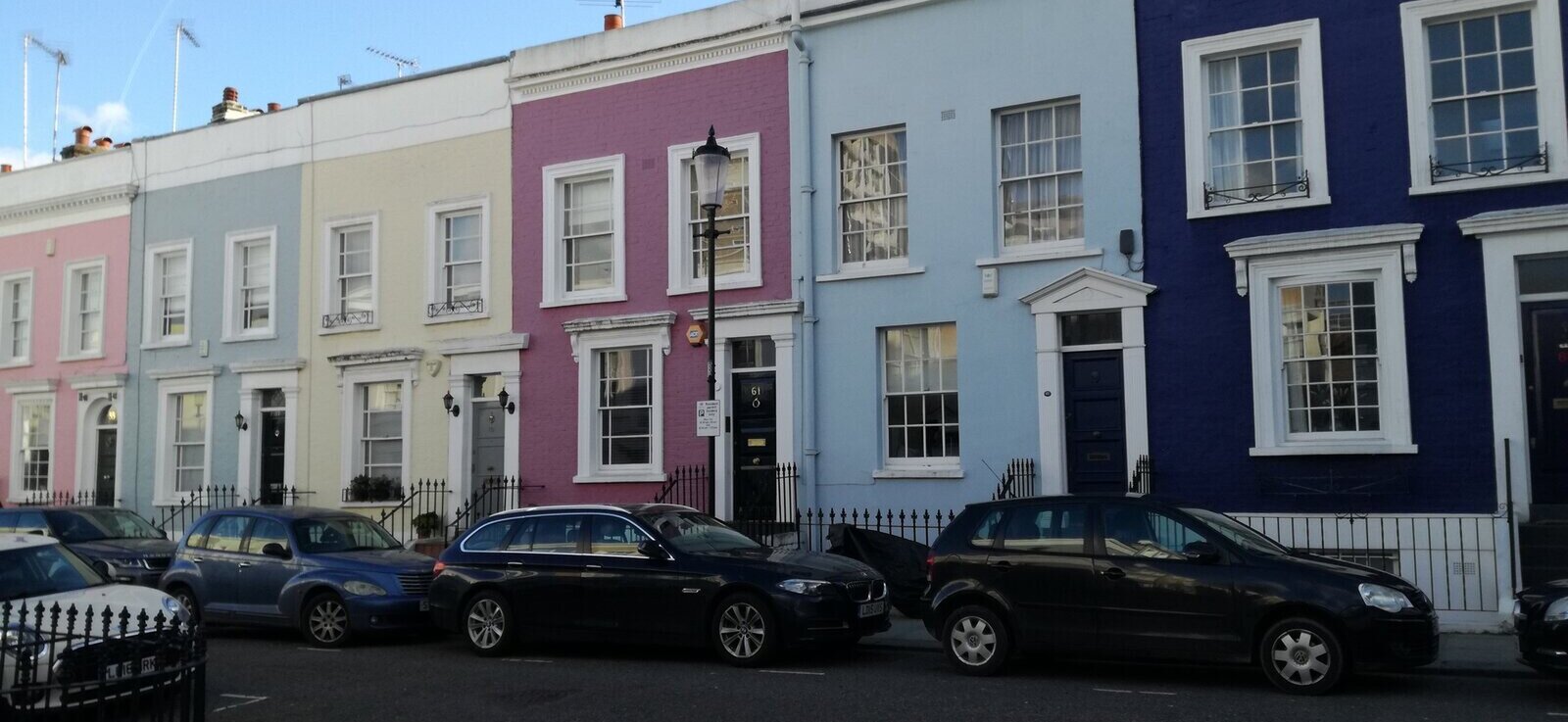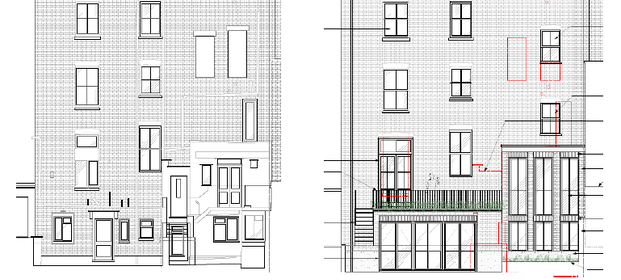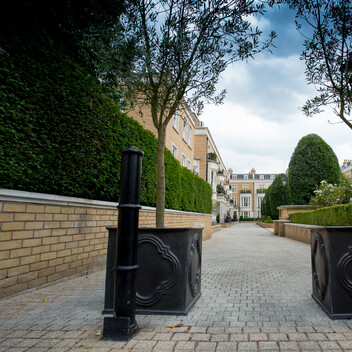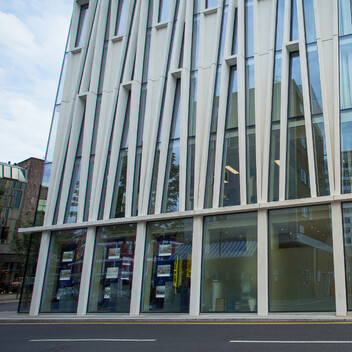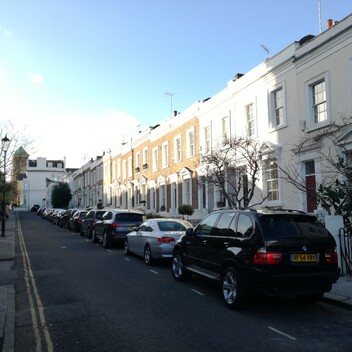WEA Planning are planning consultants in Kensington & Chelsea who can help you gain the planning permission you need, regardless of the type of proposal:
Confirmation that a development can be built using permitted development rights.
Managing prior notification schemes.
Development in Kensington and Chelsea conservation areas or where you need listed building consent.
Residential extensions, basements or loft conversions in Kensington and Chelsea.
Commercial developments, including new build and change of use.
Full planning applications.
Our experience working on planning projects in across West London covers all the different stages of the planning process.
We can help you with:
Initial consultations and pre-application submissions.
Making a full planning application to the London Borough of Kensington & Chelsea.
Making representations at Kensington and Chelsea planning committee meetings. Most applications will not need to go this go through this process, but even a smaller planning application can be called before the committee if there are a sufficient number of objections.
Applications to remove or vary a planning condition.
Certificates of lawful use.
Planning appeals and public inquiries.
Are you looking for Kensington and Chelsea planning consultants who can help you manage your planning application from initial discussions through to making a full planning application submission and then, if necessary, dealing with any objections?
WEA Planning are planning consultants who specialise in dealing with West London planning cases in local London boroughs including Hammersmith and Fulham, Westminster and the Royal Borough of Kensington and Chelsea.
We can help you with all of the different stages of the planning application.
With experience across many different sectors, WEA Planning can help with your scheme, whatever the nature and type of building proposal it is.
We have worked on all of the following types of scheme across West London:
Housing and residential schemes, including securing planning permission for large garden outbuildings, extensions, home offices and conversions from offices to flats.
Commercial planning applications, including change of use between different commercial usage types (for example from shop to restaurant).
Educational buildings, health centres and similar such public sector planning applications.
Other usage types (sui generis). This planning application type covers any kind of building which does not already have its own usage class.
Dealing with the planning process
WEA Planning are Kensington planning consultants who can help take you through all of the different phases of the planning application process. We can help advise you at the early stage in terms of what sort of applications are likely to be acceptable to the Royal Borough of Kensington Chelsea. We can also advise you on what sort of planning objections you might be likely to receive.
Submitting even a small planning application in Kensington and Chelsea without gaining advice from a planning consultant first could be an extremely costly process, since there is a huge minefield of potential pitfalls which your scheme might be liable to fall into if you don't consider the relevant planning legislation before filing your application.
Although the majority of planning applications to the Royal Borough of Kensington and Chelsea will be successful, we can help you ensure that your chances of gaining approval are as high as possible, and as planning consultants in Kensington with a broad range of experience of schemes across West London, we can also help to advise you on both dealing with objections and on what sort of conditions you might expect to be attached to your scheme.
Change of use planning consultants in Kensington and Chelsea
Since there is no space in the Royal Borough of Kensington and Chelsea for greenfield development, many planning applications will involve a change of use scheme which has little structural alteration.
Even if there are no major changes to the fabric of the building, change of use planning applications in Kensington and Chelsea can still generate a significant number of objections, especially if your project is likely to generate a lot of extra traffic.
Typical challenges associated with change of use planning schemes can include the noises and smells associated with a change from a less intrusive type of commercial usage like a shop into a catering establishment like a pub, restaurant or takeaway.
Another type of change of use development in Kensington and Chelsea which will often lead to a lot of objections is any kind of scheme which is likely to create more parking stress. This can also include residential applications, where the new occupiers are likely to want to have parking space included, but local restrictions imposed both by the Royal Borough and by Transport for London will often make parking provision extremely limited. This is often dictated by the PTAL score of the location in question.
Planning applications in Conservation Areas in Kensington in Chelsea
A great deal of the Royal Borough of Kensington and Chelsea is designated with Conservation Area status, as would be expected in a location which includes some of the most famous and historic buildings in not just London, but also at a global level.
Conservation Area status doesn't mean that you can't build, nor does it mean that you can't extend the building or change your building's usage from one classification to another, but it does mean that planning controls are a great deal stricter than they are in any other area.
As Kensington planning consultants, WEA planning can help you advise on dealing with conservation area status. We can also help you to ensure that your scheme is likely to attract as few objections as possible. When any objections are made by residents or other interested parties, we can also help you to ensure that they are dealt with as effectively as possible.
Listed building consent
There are a huge number of listed buildings in the Royal Borough of Kensington and Chelsea, including some of the most famous buildings in the UK, especially around the "Albertopolis" area. Gaining listed building consent in Kensington Chelsea can be a complicated process, and it will usually involve seeking the advice of a specialist listed building consultant.
As Kensington planning consultants, we can help you advise on all other aspects of your planning application, and we can help liaise with specialists who deal in listed building and heritage matters.
Dealing with planning objections in the Royal Borough of Kensington and Chelsea
Unless your planning scheme has an extremely minimal impact, the chances are that you will receive a number of objections when you submit a planning application to the Royal Borough of Kensington Chelsea. This is the most affluent local authority area in the United Kingdom, and with that affluence comes a high propensity for neighbours to raise objections about development.
It's at this stage where it's really useful to have the services of a Kensington planning consultant available, because we are fully experienced in dealing with planning objections on schemes right across West London.
One of the first things we can advise on is what sort of complaints might make up what are termed as "materially relevant" planning objections, and what sort of objection does not carry any significant weight. For example, material planning objections include issues such as the generation of noises and cooking smells, and they also include traffic safety and highways problems such as access/egress and parking.
Contact WEA Planning for Kensington and Chelsea Planning Advice
Use the contact form to find out how WEA can help you.
Please refer to our Privacy Notice page for details regarding our GDPR Policy and protection of your data.
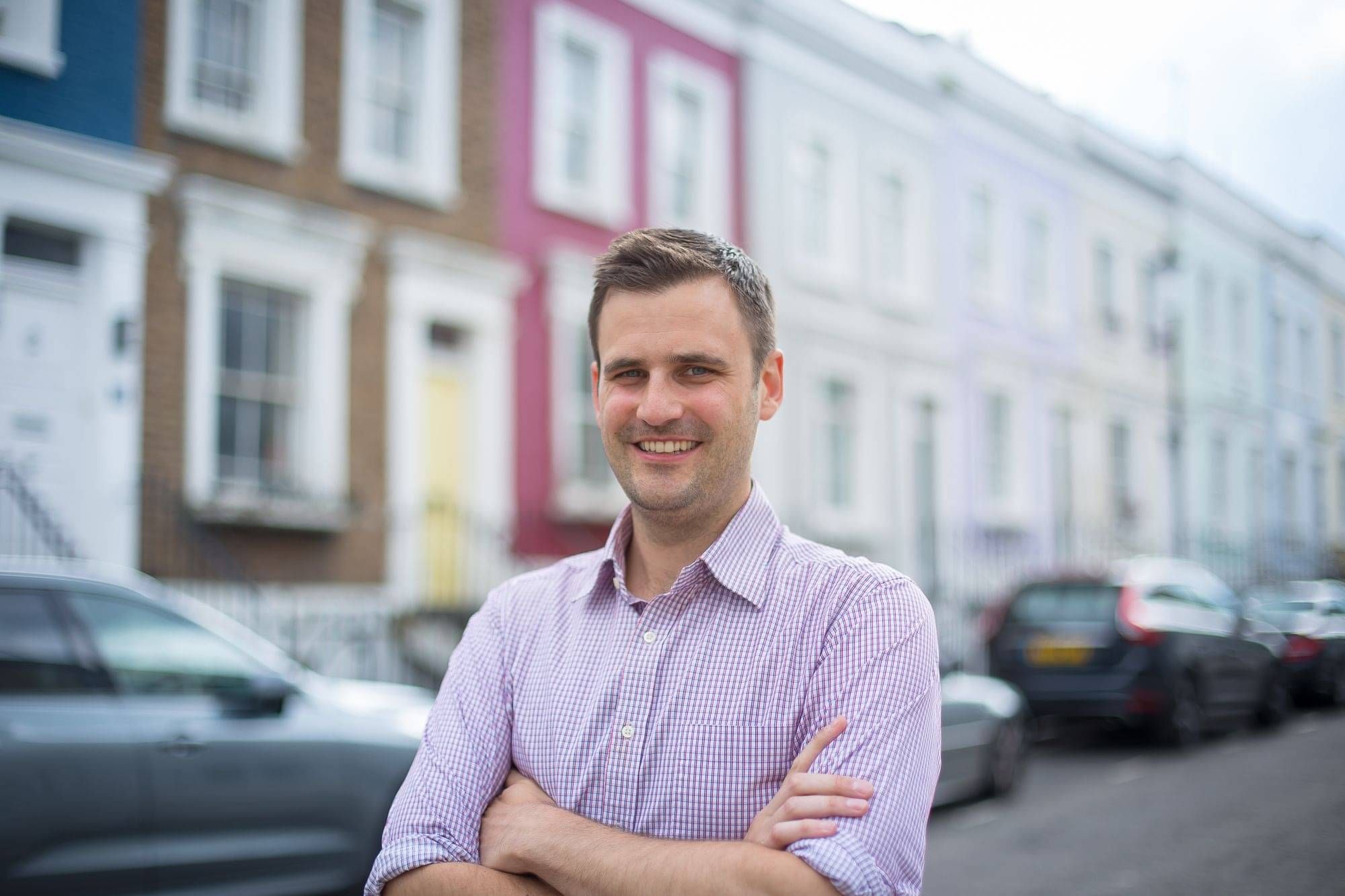
However, some residents will raise what are known as non-material planning objections, and these include issues such as the disruptions made during the construction process, or concerns that your scheme might have a negative impact on their own property values. However, although the construction process itself cannot give rise to a planning objection (otherwise nothing would ever get built), the Royal Borough of Kensington and Chelsea can impose conditions which will require you to have detailed construction statements, and they can also impose very strict controls on the operating hours of the development site.
Representing you at the Kensington and Chelsea planning committee
Most planning applications in Kensington and Chelsea will be dealt with by council planning officers, who use what are known as delegated powers to grant approval (or issue a refusal) to schemes on behalf of the elected planning committee members.
Typically, larger or more contentious schemes will be dealt with directly at the planning committee level, whereas smaller schemes will be recommended for a committee decision if they have more than 3 unsatisfied planning objections.
In planning jargon, an unsatisfied objection simply means one that the case officer hasn't been able to deal with by liaising between the applicant and the objector. A typical example might be if an objection was raised about the lack of cycle parking. If the applicant was asked to install a covered parking shelter, then this objection would be deemed to have been satisfied. However, if this was a larger scheme like an apartment block or a student accommodation tower, and planning guidelines called for a minimum of 100 cycle parking spaces, but only 50 were provided, then any provision on this grounds might be deemed acceptable to planning officers, but it wouldn't deemed to be fully satisfied to the objector.
As experienced planning consultants in Kensington and Chelsea, WEA Planning can advise you on making representations to the planning committee, should this need arise.
In most cases, you will find that your scheme will be put before the planning committee due to unsatisfied objections. In this case, it is important to seek appropriate planning advice to make sure that these can all be answered at the committee stage.
This is why it is usually best to have an experienced Kensington planning consultant to make representations for you at the planning committee. In some cases, you might prefer to make your own representations. In this case, we can advise you on exactly what sort of statement to make, on how to manage your representation, and in particular on what sort of issues you don't need to cover.
As with other local authorities, the Royal Borough of Kensington and Chelsea will usually give the applicant a minimum of 3 minutes to make their case.
Condensing all of the necessary points to support your planning application into just 3 minutes can be quite a challenge, but it is something that we have had to do a number of times on various schemes across West London. We can ensure that you have a suitable Kensington planning consultant to make your case here.
About the Royal Borough of Kensington and Chelsea
Other than the City of London, the Royal Borough of Kensington and Chelsea is the smallest local authority in London by land area, measuring just over 12 km² or 4.7 mi². With a population of just over 155,000 people, Kensington and Chelsea has a significantly lower outright population than any of the other London borough, but the overall population density is one of the highest at just under 13,000 people per square kilometre. This figure is only exceeded by Hackney, Tower Hamlets and Islington.
As planning consultants in Kensington, we will always ensure that your schemes fits in with the development policies of the Royal Borough.
The Local Plan informs the policies which guide development across the borough, this includes residential, commercial, parks and other public infrastructure. These policies are important to decide whether to approve planning applications.
The Local Plan was adopted in 2024.
Transport in Kensington and Chelsea
Unlike the other boroughs which make up central London, there aren't any mainline railway termini in the Royal Borough of Kensington and Chelsea, but connections by tube are widely available. Respectively from north to south, the Hammersmith and City line, Central line, Piccadilly line and District line run roughly east to west across the borough, whereas the western reaches of the circle line run in an arc between Notting Hill Gate and Sloane Square.
There's also an important overground connection which runs north-south along the western reaches of the borough, and includes stations at Shepherd's Bush, Kensington Olympia, and West Brompton, all on the boundary with Hammersmith.
Kensington and Chelsea also has a good network of bus routes, and these are especially useful for people wanting to travel between points which aren't well served by the tube.
Most of the borough is in the highest band for public transport rating, having a "PTAL" score of 6a or 6b. This is important when the Highways impacts of your scheme are considered.
Historically, the Royal Borough of Kensington and Chelsea has been hostile towards cycle route development, and has instead tried to pursue a policy of promoting "shared space", most notably on Exhibition Road in front of Natural History Museum.
Transport Statements and parking beat studies in the Royal Borough of Kensington and Chelsea
Consideration for the transport impacts of your planning application to the Royal Borough of Kensington and Chelsea is an extremely important part of the process. We can help advise on ensuring that your planning scheme is compatible with the policies both of the Royal Borough and also the wider policies of Transport for London.
If necessary, we can also provide studies to demonstrate that the parking impact of your planning application will be acceptable in Highways terms. This can also include commissioning parking beat studies where they are needed.
Dealing with planning appeals
In many cases, we are contacted by an applicant who has already made a planning application to the Royal Borough of Kensington and Chelsea, but who has had their application refused. At this stage, there are two typical routes that we can advise you to go down. The first option is simply to make a direct appeal. This might typically include submitting more evidence which shows that your scheme is compatible with the policies of the Royal Borough of Kensington and Chelsea, and also with London-wide and national level policies.
Planning appeals are typically dealt with by a planning inspector, and this might us involve us attending a hearing on your behalf, or in some cases attending a hearing alongside you. We are experienced Kensington planning consultants who are more than happy to make representations for you at such a hearing.
The second option might simply be to change your planning application so that it becomes more acceptable to fit in with local planning policies, and then to make a fresh application instead.
Help with making planning objections in Kensington Chelsea
Sometimes we are contacted by neighbours or other interested groups in order to help make objections to planning schemes in West London, and we are always happy to do this. Even for residents' groups and other concerned bodies, it can help to seek advice from an experienced Kensington planning consultant in order to ensure that you can make suitable planning representations on the relevant material grounds.
